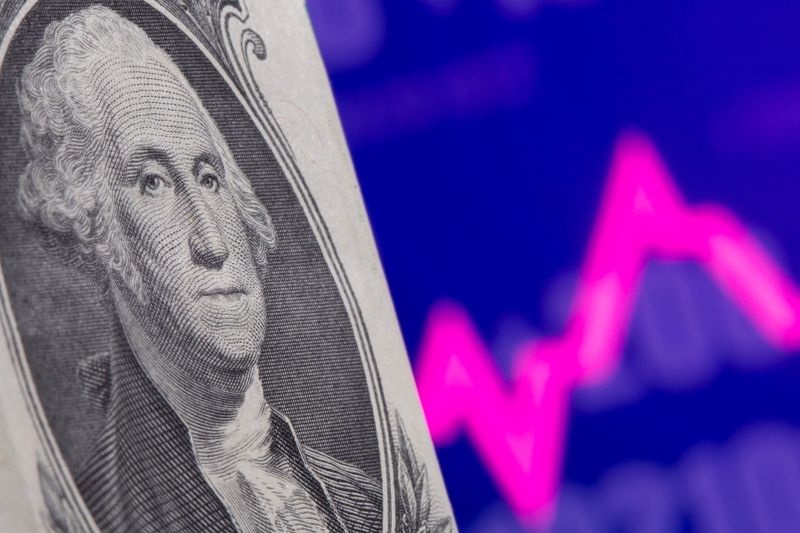Denison Mines announces $250 million convertible notes offering
By Peter Nurse
Investing.com - The U.S. dollar rebounded in early European trade Tuesday, helped by aggressive rate hiking comments from Federal Reserve Governor Christopher Waller, but is still heading for its first monthly drop in five months, especially against the resurgent euro.
At 3 AM ET (0700 GMT), the Dollar Index, which tracks the greenback against a basket of six other currencies, traded 0.3% lower to 101.610, having fallen to a five-week low of 101.29 overnight.
The dollar received a boost from comments by Federal Reserve Governor Christopher Waller, who indicated he was in favor of raising interest rates in half-percentage point steps until inflation is easing back toward the U.S. central bank’s goal.
“I support tightening policy by another 50 basis points for several meetings,” he said in remarks prepared for delivery on Monday in Frankfurt. “In particular, I am not taking 50 basis-point hikes off the table until I see inflation coming down closer to our 2% target.”
The Fed raised rates by a half point this month to cool the hottest inflation in 40 years and has signaled that hikes of the same amount should be expected in June and July. However, expectations had been growing that the central bank would then pause to study the impact of these moves.
Waller’s comments helped arrest the greenback’s slump, particularly versus the euro as markets repositioned in anticipation of interest rate hikes in Europe.
EUR/USD fell 0.2% to 1.0752, having hit a five-week high of 1.0786 overnight, as German inflation rose to its highest level in nearly half a century in May on the back of soaring energy and food prices.
The euro is also set for a 2.2% gain in May, which would be its biggest monthly rise in a year.
Eurozone CPI data is due later Tuesday, with economists expecting the index to hit another record high of 7.7% in May, up from 7.4% in April. However, the stronger than expected German data implies a possibility that this could come in above expectations as well.
ECB President Christine Lagarde said last week that the deposit rate should start rising in July and could be at zero or "slightly above" by the end of September before rising further "towards the neutral rate."
“Recent reports suggest the speculative community has been cutting its short euro positions,” said analysts at ING, in a note. ”Yet we do not think there are strong arguments for EUR/USD to move back to and above 1.10. After all, the surge in energy prices is being more keenly felt in Europe and the deterioration in Europe's terms of trade has damaged the euro's medium-term fair value.”
Elsewhere, GBP/USD fell 0.3% to 1.2617, but is still set for its first monthly rise in 2022, while the risk-sensitive AUD/USD dropped 0.1% to 0.7193 and NZD/USD fell 0.2% to 0.6540.
USD/JPY rose 0.2% to 127.86, still set for its weakest month since July last year, while USD/CNY fell 0.1% to 6.6580, with the yuan still buoyed by China’s progress out of virus lockdowns.
USD/HUF rose 0.6% to 367.61 and EUR/HUF rose 0.4% to 395.18 ahead of the latest meeting of Hungary’s central bank.
It is expected to raise its benchmark rate by 60 basis points to 6%, half the pace of rate hikes seen in March and April, reining in the scale of its monthly interest rate hikes as it seeks to tame record inflation.
